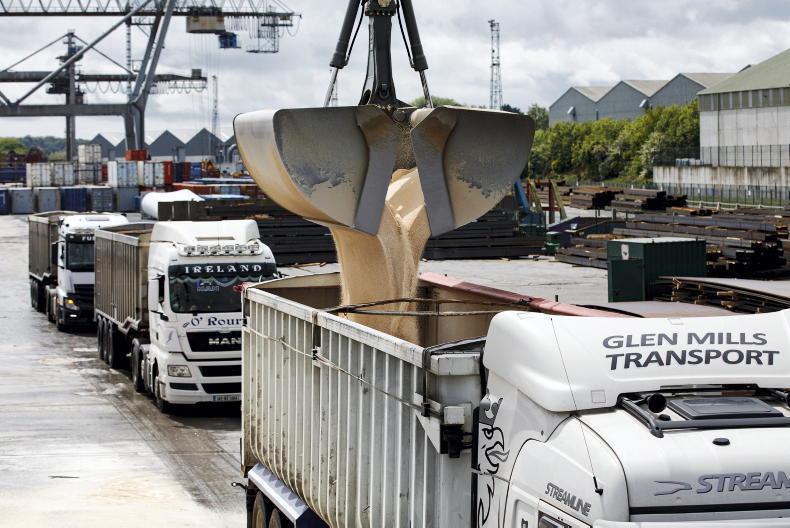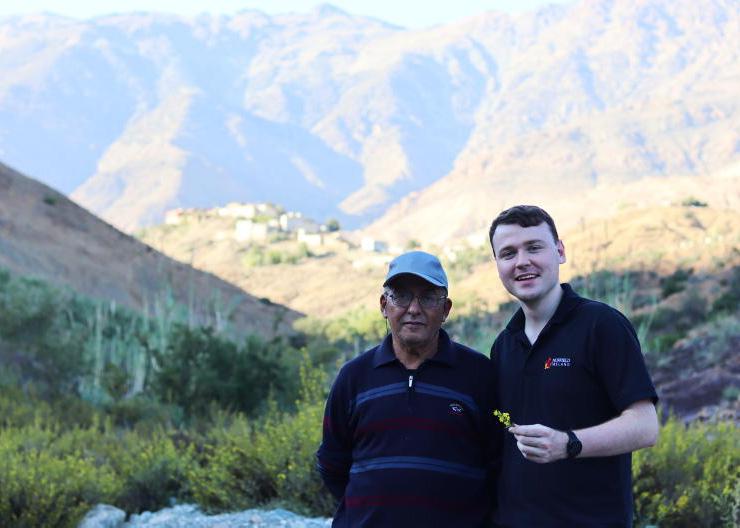Speaking today at the European Commission offices in Dublin, five months after the COP21 talks in Paris, and two months before the EU Commission's final proposal on each member state's climate targets for 2030, the European Commissioner for Energy and Climate Change, Miguel Arias Cañete, said that all sectors, including agriculture, have an important role to play in helping countries reach their emission reduction targets.
He added, however, that the Commission is aware of "the specific situation with regard to agriculture in Ireland".
"Ireland has a very specific situation because the emissions from agriculture in Ireland are double the average of the EU - over 40% of Ireland's emissions come from agriculture," he said.
"But," he added, giving a nod to Ireland's carbon-efficient grass-based system, "the country is very efficient in farming, so we have to consider the specific situation of Ireland in this context".
The Commissioner went on to say that he has been speaking to EU Agriculture Commissioner Phil Hogan about land use and forestry over the last year in order to achieve "mutual understanding" on the European agricultural sector, particularly in Ireland.
Therefore, referring to the final proposal for each country on targets for 2030 to be published in July 2016, the Commissioner said he thinks the Commission has "a balanced proposal for the agricultural sector".
Cañete added, however, that it is not easy to please everyone with a stake in the industry and to ensure that the targets for Ireland are realistic. Therefore, he will be having ongoing discussions with the Irish Government up until the EU Commission's final proposal in July.
He added that the Commission is "seeking all the flexibilities needed" so that Ireland's 2030 targets are "ambitious but feasible".
2030 targets
In October 2014, the European Council agreed on the 2030 climate and energy framework for the EU. This endorsed a number of targets, including a binding EU target of at least 40% less greenhouse gas emissions by 2030 compared to 1990, and a target, binding at EU level, of at least 27% renewable energy consumption in 2030.
However, Ireland is already having difficulty meeting its targets for 2020, which require a 20% reduction on emission levels compared to 2005. Recent estimates from the Environmental Protection Agency suggest that Ireland will fall short of reaching this target by around 6%.
Therefore, Ireland is understood to be looking for a special dispensation on 2030 targets, given the difficulty the country is having with reaching the 2020 targets set by the EU Commission.
Rural Development Programmes
Speaking in more detail about the ways agriculture can help Ireland reach its climate targets, Cañete said the Commission supports Ireland's rural development programmes, such as GLAS and the BDGP, which improve the efficiency of the farming sector as well as reducing livestock emissions.
The Commissioner added that he has "lots of admiration" for the work that Ireland has done reducing its agricultural emissions in agriculture so far.
"We acknowledge the progress made by Ireland in this area," he said.
He added that the Commission is thinking about how some European funds could be earmarked for carrying out research on how to further reduce emissions in the agricultural sector.
"But we cannot put agriculture away and say it does not participate in this global reduction of emissions because we have to look at all the sectors," he added.
Carbon tax
The Commissioner criticised a suggestion from Thomas Cooney, IFA environment spokesperson, to impose a carbon tax on food imports coming from South American countries to encourage equivalence of standards with European countries, saying it could jeopardise trade agreements.
"A carbon tax would not be consistent with WTO regulations and would cause problems with trade agreements," the Commissioner said.
"Furthermore we cannot know the carbon footprint of all the countries. The exercise that Ireland has done to know its footprint in agriculture has not happened everywhere else. So how could we impose a carbon tax without knowing the footprint?"
Earlier on Friday the Commissioner met with Taoiseach Enda Kenny and Minister for Agriculture Michael Creed, who said before the meeting that he would be "pushing at EU level regarding the unmatched carbon efficiency of our grass based production system".
The minister also said he would be looking for "full recognition of the role forestry plays as a carbon sink."
Read more
Irish grasslands could have potential to combat greenhouse-gas emissions
Full coverage: agriculture and climate change
Speaking today at the European Commission offices in Dublin, five months after the COP21 talks in Paris, and two months before the EU Commission's final proposal on each member state's climate targets for 2030, the European Commissioner for Energy and Climate Change, Miguel Arias Cañete, said that all sectors, including agriculture, have an important role to play in helping countries reach their emission reduction targets.
He added, however, that the Commission is aware of "the specific situation with regard to agriculture in Ireland".
"Ireland has a very specific situation because the emissions from agriculture in Ireland are double the average of the EU - over 40% of Ireland's emissions come from agriculture," he said.
"But," he added, giving a nod to Ireland's carbon-efficient grass-based system, "the country is very efficient in farming, so we have to consider the specific situation of Ireland in this context".
The Commissioner went on to say that he has been speaking to EU Agriculture Commissioner Phil Hogan about land use and forestry over the last year in order to achieve "mutual understanding" on the European agricultural sector, particularly in Ireland.
Therefore, referring to the final proposal for each country on targets for 2030 to be published in July 2016, the Commissioner said he thinks the Commission has "a balanced proposal for the agricultural sector".
Cañete added, however, that it is not easy to please everyone with a stake in the industry and to ensure that the targets for Ireland are realistic. Therefore, he will be having ongoing discussions with the Irish Government up until the EU Commission's final proposal in July.
He added that the Commission is "seeking all the flexibilities needed" so that Ireland's 2030 targets are "ambitious but feasible".
2030 targets
In October 2014, the European Council agreed on the 2030 climate and energy framework for the EU. This endorsed a number of targets, including a binding EU target of at least 40% less greenhouse gas emissions by 2030 compared to 1990, and a target, binding at EU level, of at least 27% renewable energy consumption in 2030.
However, Ireland is already having difficulty meeting its targets for 2020, which require a 20% reduction on emission levels compared to 2005. Recent estimates from the Environmental Protection Agency suggest that Ireland will fall short of reaching this target by around 6%.
Therefore, Ireland is understood to be looking for a special dispensation on 2030 targets, given the difficulty the country is having with reaching the 2020 targets set by the EU Commission.
Rural Development Programmes
Speaking in more detail about the ways agriculture can help Ireland reach its climate targets, Cañete said the Commission supports Ireland's rural development programmes, such as GLAS and the BDGP, which improve the efficiency of the farming sector as well as reducing livestock emissions.
The Commissioner added that he has "lots of admiration" for the work that Ireland has done reducing its agricultural emissions in agriculture so far.
"We acknowledge the progress made by Ireland in this area," he said.
He added that the Commission is thinking about how some European funds could be earmarked for carrying out research on how to further reduce emissions in the agricultural sector.
"But we cannot put agriculture away and say it does not participate in this global reduction of emissions because we have to look at all the sectors," he added.
Carbon tax
The Commissioner criticised a suggestion from Thomas Cooney, IFA environment spokesperson, to impose a carbon tax on food imports coming from South American countries to encourage equivalence of standards with European countries, saying it could jeopardise trade agreements.
"A carbon tax would not be consistent with WTO regulations and would cause problems with trade agreements," the Commissioner said.
"Furthermore we cannot know the carbon footprint of all the countries. The exercise that Ireland has done to know its footprint in agriculture has not happened everywhere else. So how could we impose a carbon tax without knowing the footprint?"
Earlier on Friday the Commissioner met with Taoiseach Enda Kenny and Minister for Agriculture Michael Creed, who said before the meeting that he would be "pushing at EU level regarding the unmatched carbon efficiency of our grass based production system".
The minister also said he would be looking for "full recognition of the role forestry plays as a carbon sink."
Read more
Irish grasslands could have potential to combat greenhouse-gas emissions
Full coverage: agriculture and climate change










SHARING OPTIONS